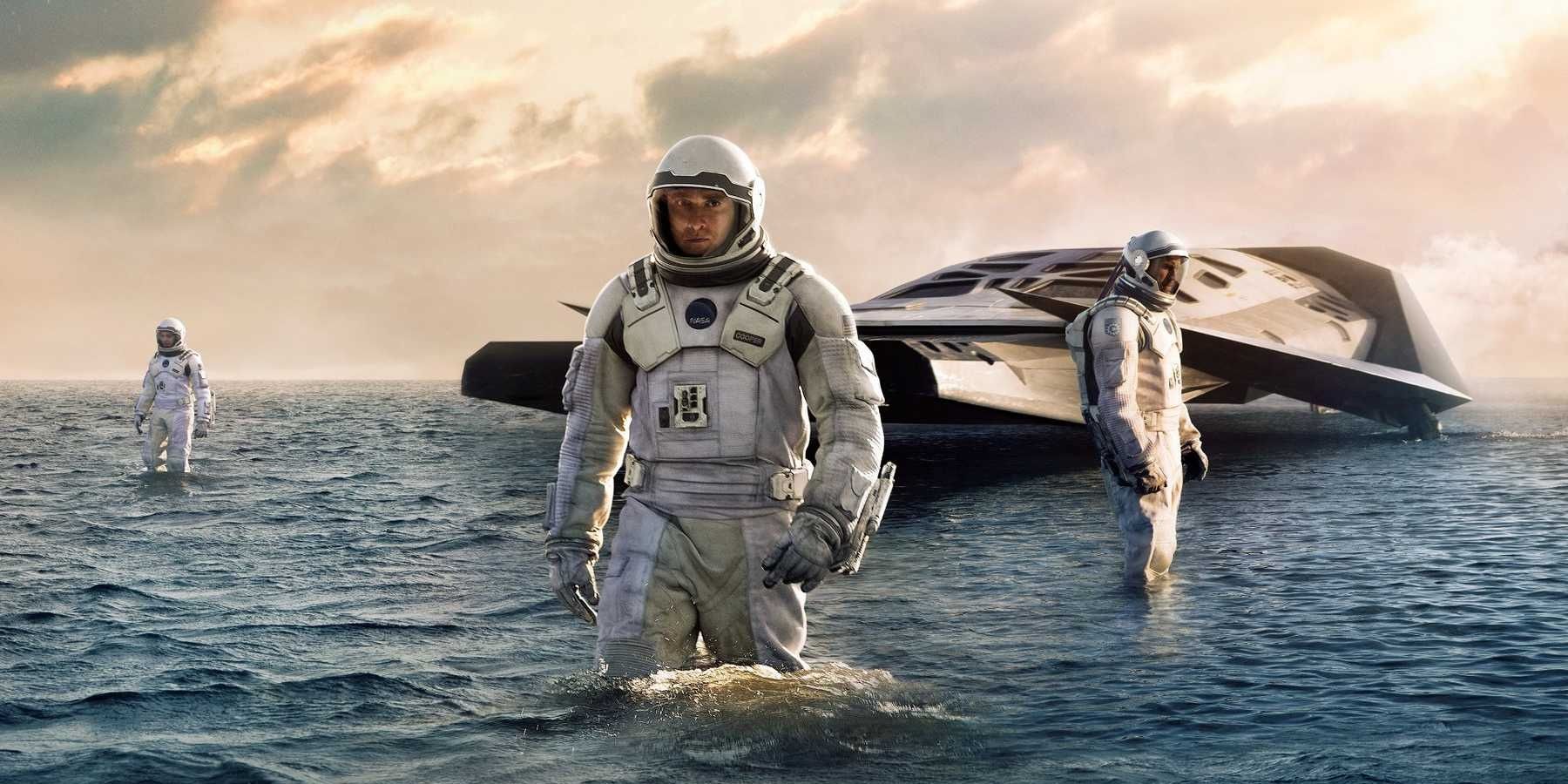Although Christopher Nolan is a decorated Hollywood director, he has received complaints from his directing peers about his use of sound in Interstellar. Unlike his more successful works like The Dark Night, Inception, and Dunkirk, Nolan’s 2014 sci-fi adventure flick Interstellar saw weak box office results and received a mixed reception. Regardless, Nolan is still well-respected in the industry for his ability to draw in massive theater audiences. Most recently, however, despite mostly positive reviews, the release of Nolan’s sci-fi film Tenet gravely misread that audiences were not ready to return to theaters during the Coronavirus pandemic.
Some dedicated Nolan fans would argue that Interstellar is one of his greatest films. However, the critical reception would say otherwise. Interstellar takes place in Earth’s future as the planet is becoming uninhabitable. The story follows Professor Brand (played by Micheal Caine), a NASA physicist trying to save humanity by taking a journey across the galaxy and through a wormhole to find a new home for humankind. At the 87th Academy Awards, Interstellar received a handful of nominations and won the Oscar for Best Visual Effects. Additionally, Interstellar received nominations for its sound editing and mixing but did not win these categories.
In Tom Shone's book, The Nolan Variations: The Movies, Mysteries, and Marvels of Christopher Nolan (via Indiewire), Nolan said he often gets complaints from audiences about his work’s sound design and fellow directors have also complained to Nolan about his use of sound. With Interstellar specifically, Nolan’s directing peers have expressed frustrations over not being able to hear the dialogue. Nolan took a nontraditional approach with the sound mix. In Interstellar, they took out traditional filters in the software that filter out low-end frequencies. As a result, the organ is exaggerated in the soundtrack, and Nolan argues that this effect is pretty remarkable in the IMAX experience. Nolan expressed his thoughts on the sound in Interstellar, saying:
“We got a lot of complaints. I actually got calls from other filmmakers who would say, ‘I just saw your film, and the dialogue is inaudible.’ Some people thought maybe the music’s too loud, but the truth was it was kind of the whole enchilada of how we had chosen to mix it. It was a very, very radical mix. I was a little shocked to realize how conservative people are when it comes to sound. Because you can make a film that looks like anything, you can shoot on your iPhone, no one’s going to complain. But if you mix the sound a certain way, or if you use certain sub-frequencies, people get up in arms.”
Although the reception of Nolan’s sound design is mixed, it’s exciting to hear a director who is comfortable experimenting with sound to enhance the viewer experience. In cinema, sound is the last element most viewers notice. However, the sound is also the first element to bring the viewing experience crashing down if there are even minor issues. Whether or not Interstellar’s sound design is successful, Nolan’s demonstrated he is more willing to experiment with sound than some of his peers.
Taking artistic liberties with sound is exciting in an industry where directors fear experimenting will reduce their box office success. Unfortunately, the complaints Nolan’s directing peers had with Interstellar have resurfaced with audience reactions to Tenet. Fans have expressed their frustrations that the dialogue is hard or impossible to understand at specific points in the movie. Nolan’s stories are often complicated, so hearing dialogue that explains the movie’s science is essential to understanding his sci-fi narratives. Hopefully, Nolan will listen to his peers’ complaints about Interstellar and correct the audio issues in his movies while still embracing experimentation as he moves forward with his career.
Source: The Nolan Variations: The Movies, Mysteries, and Marvels of Christopher Nolan via Indiewire


